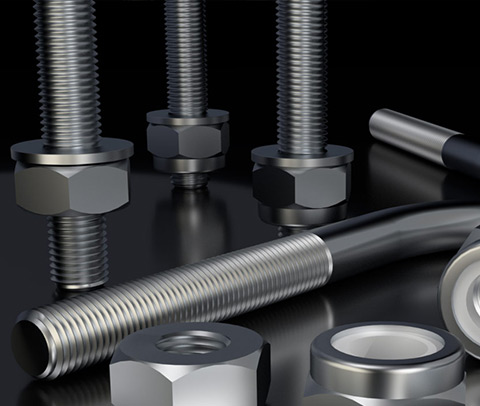The pitch of a
hex nut's threads plays a crucial role in determining its performance and function when used in conjunction with threaded bolts or rods. The pitch refers to the distance between adjacent threads and is usually expressed in threads per inch (TPI) or in millimeters (mm). Here are the key performance differences caused by different pitches of hex nuts:
Thread Engagement: The primary difference between hex nuts with different pitches is the amount of thread engagement they provide with the corresponding bolt or threaded rod.
Coarse Thread Pitch: Nuts with a coarse thread pitch (fewer threads per inch or larger thread spacing) have less thread engagement with the bolt. This results in faster installation and removal but may offer slightly lower resistance to loosening due to vibrations.
Fine Thread Pitch: Nuts with a fine thread pitch (more threads per inch or smaller thread spacing) offer greater thread engagement with the bolt. This provides increased resistance to loosening and can create a more secure fastening. However, fine thread nuts may take longer to install due to the higher number of threads.
Strength and Load Capacity: The thread pitch can affect the strength and load-carrying capacity of the fastener assembly. Generally, fine thread nuts, with their increased thread engagement, can distribute loads more evenly along the threads, potentially resulting in higher load-bearing capabilities. Coarse thread nuts may be preferred for applications where quick assembly is essential, but fine thread nuts are often chosen for critical applications with high load requirements.
Thread Wear: The thread pitch can influence the wear and tear on the threads of both the nut and the bolt. Coarse threads can be less prone to galling (thread damage due to friction) than fine threads. However, fine threads distribute the load more evenly, reducing localized stress, which can contribute to improved thread longevity.
Thread Stripping: Coarse threads may be less susceptible to thread stripping during installation because there is more space between threads for alignment. Fine threads require careful alignment and torque application to prevent stripping.
Vibration Resistance: Nuts with fine thread pitches generally provide better resistance to self-loosening due to vibrations, making them suitable for applications where vibration is a concern.
Torque Requirements: Fine thread nuts may require more torque to achieve the same level of tension as coarse thread nuts on the same diameter bolt. Proper torque specifications must be followed to avoid over-tightening and damaging the threads.
Thread Standardization: Different industries and regions may have preferences for coarse or fine threads based on historical practices and standards. It's important to consider industry norms when selecting thread pitch.

